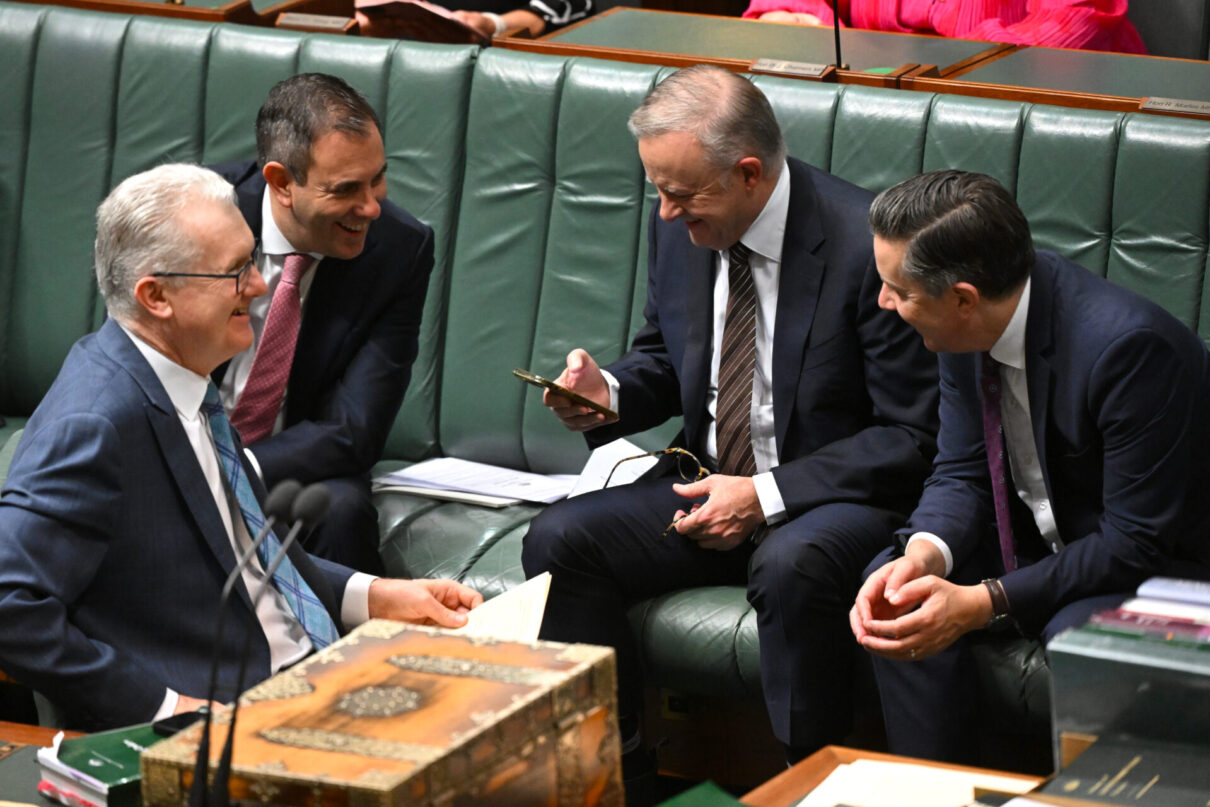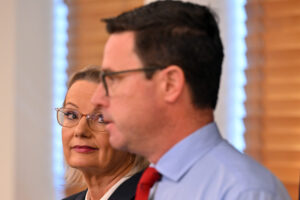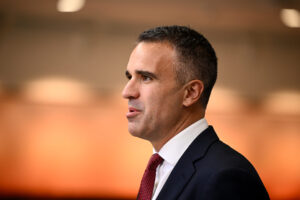‘Tis the season for poor process, rushed law-making and railroaded parliaments. With the end of the year rapidly approaching, governments have lost patience for democratic niceties like consultation, parliamentary reviews and public hearings.
The Albanese government wants to pass major changes to national electoral laws with the help of the opposition.
On the cards are tens of millions in taxpayer funding for the major parties, donation caps, and limits on campaign spending – though the rules are much stricter for independent challengers than for major party MPs. They are the biggest changes to Australian democracy in decades – and Australians saw the legislation only last Monday.
The Albanese government is also rushing a social media age ban. It did graciously allow a parliamentary inquiry for this one. Don’t bother writing something – it gave only 24 hours for submissions, and “would appreciate” nothing more than two pages long.
But South Australia takes the cake for pushing new laws through before anyone has time to react.
Two weeks ago, Premier Peter Malinauskas announced Labor, Liberal, Greens and One Nation parliamentarians all supported his legislation to massively increase the amount of public money going to political parties and MPs while simultaneously banning most political donations. The bill will deliver political parties millions of dollars in extra funding while putting limits on newcomers’ fundraising.
Only once the bill was introduced to the Legislative Council did cracks appear; it was described as “rushed”, “a bit of a leap of faith”, an “election vanity project” and compared to the movie Sophie’s choice.
But no one would vote against it. One day later, it passed the Legislative Council at 11pm, under literal cover of night. It is expected to sail through the Labor-dominated House of Assembly this week.
South Australian parliamentarians have staked their reputations on these dramatic changes, even though the proposed laws have never been tested in a public inquiry. South Australians will become the financiers and underwriters of the political parties. Taxpayers are up for about $15 million-$20 million dollars extra over a four-year electoral cycle.
It is an attractive proposition for the major parties, as it is likely to lock in increased levels of funding for the foreseeable future.
Whether it is so attractive to the South Australian public is unclear.
The proposal is expensive. It comes with no improvements in how democratic or accountable the parties are. The political parties will not have to publish annual reports explaining where the money goes, adopt freedom of information or whistleblowing policies, or be subject to rules we impose on other publicly-funded institutions like art galleries and museums.
Will South Australians think the extra spending is worth a reduction in political donations from vested interests? Maybe – but no one has cared to find out.
The government held one consultation, on an earlier and very different draft of the legislation. SA Attorney-General Kyam Maher has refused to publish the submissions, but later reporting confirms that most submissions that expressed an opinion were negative.
The government took two years to draft a bill. That attempt was undemocratic, unfair, and very possibly unconstitutional. It threw together a revised bill over a few months, but has refused to expose that version to even the perfunctory consultation that the original received.
South Australians got to see the new bill only after Labor, Liberal, Greens and One Nation had all agreed to allow it through it following extensive behind-the-scenes negotiations.
In a Westminster democracy like Australia, major changes to electoral law like those proposed by the Malinauskas and Albanese governments would normally go to a parliamentary inquiry. Concerned citizens would make public submissions, and a committee of interested parliamentarians would consider the evidence and interrogate it in public hearings.
This gives the public confidence that all issues have been considered, forces the executive government to answer to elected representatives and lets parliamentarians satisfy themselves that they understand the laws they are about to vote for.
Given South Australia’s secret consultation went so badly, perhaps it is not surprising that neither state or federal governments have held a public inquiry.
The irony of these laws is that they are intended to increase trust in parliamentarians, but the government does not trust Parliament to hold an inquiry, does not trust the public with the submissions it received, and will not subject its legal advice to public scrutiny.
Meanwhile, political parties and MPs will receive tens of millions of dollars as a direct result of rushing these changes through the parliament. The government is giving more public money to South Australian politicians than they have ever had before – while circumventing its duty to scrutinise this very legislation.
A “crash through” approach to legislation has come to define the Malinauskas government. Last year, anti-protest laws were workshopped live on talkback radio, and passed by the House of Assembly within 48 hours. The universities’ merger is another captain’s pick.
Previous parliaments have also rushed complex legislation, at the expense of democracy and accountability. The 2021 changes to the South Australia’s Independent Commission Against Corruption legislation are a prime example of poor legislative practice, but it appears this government and many of the MPs involved in that debacle have failed to learn any lessons from it.
The one silver lining is that this affair proves that when politicians really want something done, they unite to make it happen. The reviews, inquiries, consultations and all the rest are optional. In this case, it is public money for politicians that gets priority treatment.
South Australians are entitled to ask why issues such as climate action, an end to homelessness or fixing ambulance ramping do not get this type of prioritisation.
The next time a politician tells you it is all too hard, complicated or expensive, or that significant change takes time, it might be worth reminding them that they were able to ram tens of millions of dollars of new funding for political parties through the parliament, with minimal scrutiny or review, in just a few short weeks.
Between the Lines Newsletter
The biggest stories and the best analysis from the team at the Australia Institute, delivered to your inbox every fortnight.
You might also like
Gender parity closer after federal election but “sufficiently assertive” Liberal women are still outnumbered two to one
Now that the dust has settled on the 2025 federal election, what does it mean for the representation of women in Australian parliaments? In short, there has been a significant improvement at the national level. When we last wrote on this topic, the Australian Senate was majority female but only 40% of House of Representatives
South Australia’s leap into the unknown with political finance changes
July 1 marked a dramatic change in how political parties and candidates are funded in South Australia.
The election exposed weaknesses in Australian democracy – but the next parliament can fix them
Australia has some very strong democratic institutions – like an independent electoral commission, Saturday voting, full preferential voting and compulsory voting. These ensure that elections are free from corruption; that electorate boundaries are not based on partisan bias; and that most Australians turn out to vote. They are evidence of Australia’s proud history as an


